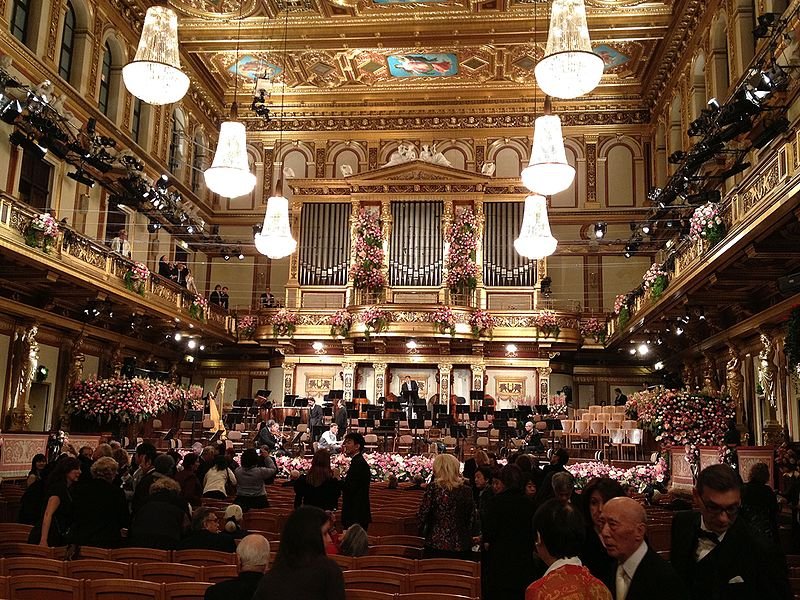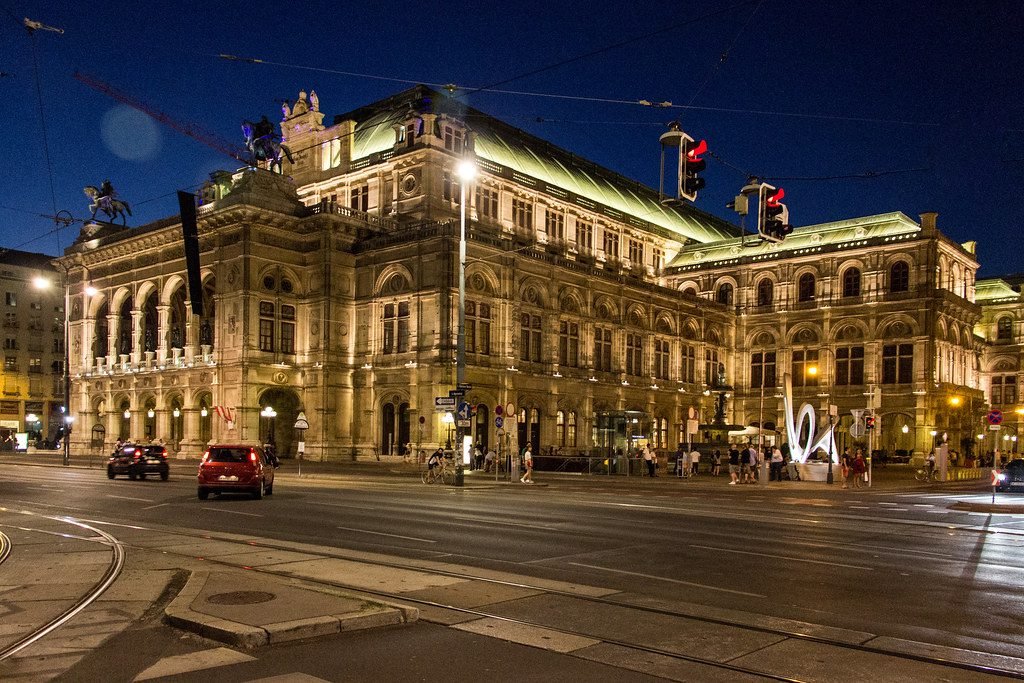Vienna, the undisputed “City of Music,” has been the epicenter of classical composition and performance for centuries. From Mozart and Beethoven to Strauss and Schubert, its cobblestone streets and grand palaces echo with the legacies of legendary composers who found inspiration within its walls. This comprehensive guide, an essential chapter in our Ultimate Guide to Traveling to Europe, unveils the best classical music experiences in Vienna, ensuring your cultural journey through this historic European capital hits all the right notes while creating memories that resonate long after your return home.
Immerse Yourself in the Heart of Europe’s Musical Legacy!
Why Vienna is the Classical Music Capital of the World
Vienna’s reputation as the world’s classical music capital is built on a foundation of extraordinary historical musical legacy.

- Historical Legacy: Vienna was home to Mozart, Beethoven, Haydn, and Brahms. Over 600 classical concerts occur here annually.
- UNESCO Recognition: The city’s musical heritage is safeguarded as an Intangible Cultural Heritage of Humanity.
- Iconic Venues: Grand halls like the Vienna State Opera and Musikverein set the stage for unparalleled acoustics and grandeur.
Top Classical Music Experiences in Vienna
1. Attend a Performance at the Vienna State Opera

Why Go: The Vienna State Opera stands as one of the world’s most prestigious opera houses, hosting over 300 spectacular performances yearly with a repertoire spanning four centuries of operatic masterpieces.
The building itself, a neo-Renaissance architectural marvel, provides a stunning backdrop for world-class performances by international stars and the renowned Vienna State Opera Orchestra.
- Must-See Performances: Mozart’s The Magic Flute or Strauss’ Die Fledermaus, both of which hold special significance in Vienna’s musical heritage and are performed with exceptional frequency and quality at this venue..
- Insider Tip: Secure €10–€15 standing-room tickets 80 minutes before shows. For seated tickets, book months ahead via official website.
2. Experience the Vienna Philharmonic at the Musikverein
Why Go: The Musikverein’s Golden Hall (Goldener Saal) offers acoustics that are universally acclaimed as among the finest in the world, and the Vienna Philharmonic’s New Year’s Concert broadcast from this venue is viewed by millions globally.

- Seasonal Highlight: Summer concerts feature lighter classics like The Blue Danube.
- Budget Hack: Music lovers under 27 can access limited €20 tickets through the Musikverein’s U27 program, offering an affordable opportunity to experience world-class performances in this legendary venue that hosts some of the best classical concerts in Vienna.
3. Mozart & Strauss Concerts at Schönbrunn Palace
Why Go: Experience the magic of Baroque and Classical music in the authentic 18th-century imperial setting where many of these compositions were first performed.
Schönbrunn Palace, a UNESCO World Heritage site, provides a sumptuous backdrop that enhances the historical context of these timeless works while offering visitors a glimpse into Vienna’s imperial past.
- Programs: Enjoy 90-minute performances featuring Mozart’s beloved “Eine kleine Nachtmusik” and Strauss’s iconic “The Blue Danube,” performed by accomplished musicians in period costumes who bring historical performance practices to life in this extraordinary setting.
- Perks: Enhance your experience with the palace dinner package (€75), which includes a candlelit meal in the palace orangery followed by the concert, creating a complete evening of 18th-century luxury and some of the most authentic Mozart concerts Vienna has to offer.
4. Discover Haus der Musik Interactive Museum
Why Go: This modern, interactive museum offers a contemporary twist on classical music appreciation, where visitors can “conduct” the Vienna Philharmonic via digital baton, explore the science of sound, and learn about Vienna’s musical history through engaging multimedia exhibits and hands-on experiences suitable for all ages.

- Don’t Miss: The innovative Virtual Composer Room allows visitors to create their own waltz using authentic musical phrases from famous compositions, providing a unique opportunity to experience the creative process behind Vienna’s most famous musical export and making it one of the best family-friendly music experiences Vienna provides.
5. Visit Composers’ Homes & Memorials
- Beethoven Museum: Immerse yourself in the personal worlds of Vienna’s musical geniuses by visiting their former residences and final resting places. The Beethoven Museum in Heiligenstadt offers insight into the composer’s struggle with deafness and creative triumph, displaying the room where he wrote his heartbreaking Heiligenstadt Testament (€8 entry).
- Mozart Wohnhaus: At Mozart’s Wohnhaus, you can explore the apartment where the prodigy composed “The Marriage of Figaro” and other masterpieces during his most productive period (€12 entry).
- Central Cemetery: For a poignant pilgrimage, visit Vienna’s Central Cemetery (Zentralfriedhof) to pay respects at the graves of Beethoven, Brahms, Schubert, and other musical luminaries in the Cemetery’s Musicians’ Quarter (free entry).
Seasonal Festivals & Events

1. Vienna Mozart Week (January)
Each winter, Vienna celebrates Mozart’s birthday with a week of exceptional performances focused on the composer’s works.
Highlights include rare performances of Mozart’s operas and chamber music by the Vienna Philharmonic and internationally renowned soloists, offering music lovers an unparalleled opportunity to immerse themselves in the Mozart Vienna experience during the quieter winter tourist season.
2. Vienna Festival (May–June)
This prestigious festival presents avant-garde interpretations of classical works at venues like Theater an der Wien and other historic locations throughout the city.
The festival’s innovative programming bridges traditional and contemporary approaches to classical music, making it a must-visit event for those interested in experiencing how Vienna’s musical heritage continues to evolve and inspire new artistic directions.
3. Summer Night Concert (June)
One of Vienna’s most magical musical moments occurs each summer when the Vienna Philharmonic presents a free open-air concert in the gardens of Schönbrunn Palace.
Attended by over 100,000 spectators, this spectacular event features world-class soloists performing beneath the stars in a stunning imperial setting, creating one of the most democratic and accessible classical music events in Vienna.
Budget-Friendly Tips for Classical Music Lovers

- Free Church Concerts: Make the most of your musical journey through Vienna without breaking the bank. Many of the city’s historic churches, including St. Peter’s Church and St. Stephen’s Cathedral, host free organ recitals and choral performances of remarkable quality.
- Vienna Classic Pass: Consider purchasing the Vienna Classic Pass (€49) for valuable discounts at over 20 venues, including the State Opera and numerous museums dedicated to Vienna’s musical heritage.
- Student Discounts: Students should always inquire about special pricing, as many venues offer 30–50% discounts with valid identification, making affordable classical music in Vienna accessible to younger audiences.
Dress Code & Etiquette
- Opera/Philharmonic: Understanding proper concert etiquette enhances your experience and shows respect for this cherished cultural tradition. For performances at the Vienna State Opera and Philharmonic, traditional black tie or cocktail attire is appropriate and expected (dark suits for men, evening gowns or cocktail dresses for women).
- Casual Concerts: More casual concerts at venues like Kursalon Wien or church performances allow smart casual attire, though shorts and flip-flops are generally discouraged.
- Applause: Remember that applause should be held until the end of multi-movement pieces—watch experienced audience members for cues if you’re uncertain about when to applaud during Vienna classical performances.
Sample 3-Day Classical Music Itinerary
Day 1:
- Morning: Tour the Vienna State Opera.
- Afternoon: Visit Mozarthaus Vienna.
- Evening: Attend a Strauss concert at Kursalon Wien.
Day 2:
- Morning: Explore Haus der Musik.
- Afternoon: Picnic at Beethoven Park.
- Evening: Secure standing tickets for La Traviata at the Vienna State Opera.
Day 3:
- Morning: Visit Central Cemetery composers’ graves.
- Afternoon: Day trip to Heiligenstadt (Beethoven’s retreat).
- Evening: Enjoy a chamber music concert at Schönbrunn Palace.
Final Thoughts
Vienna’s classical music experiences offer a harmonious blend of history, artistry, and innovation that cannot be found anywhere else in the world.
From the grandeur of the Vienna State Opera to the intimacy of a chamber music performance in a historic palace, the city provides countless opportunities to connect with the masterpieces that have shaped Western musical tradition.
Combine this guide with our comprehensive Top Cities to Visit in Western Europe or learn How to Travel Europe on $50 a Day for complete, budget-friendly planning that ensures your musical journey through Vienna becomes the highlight of your European adventure.
May your journey through Vienna be as enchanting as a Strauss waltz! 🎻🎹
Frequently Asked Questions About Vienna’s Classical Music Scene
What is the best time of year to visit Vienna for classical music experiences?
Vienna’s classical music scene thrives year-round, but certain seasons offer unique experiences. Winter (December-February) features festive holiday concerts and the prestigious New Year’s Concert.
Spring and fall offer the fullest regular concert seasons with the Vienna Philharmonic and State Opera in full swing. Summer brings outdoor concerts like the Vienna Philharmonic’s Summer Night Concert at Schönbrunn Palace.
For the most comprehensive musical experiences, plan your visit during the regular season (September-June) when all major venues present their full programming.
Do I need to understand classical music to enjoy concerts in Vienna?
Absolutely not! Vienna’s classical music venues welcome visitors of all backgrounds and knowledge levels.
Many concert programs include familiar works specifically chosen for their accessibility.
Venues like the Musikverein and Vienna State Opera offer program notes in multiple languages, and many concerts designed for tourists provide brief introductions to the music.
The emotional impact of experiencing live classical music in Vienna’s historic venues transcends any need for technical knowledge.
How far in advance should I book tickets for Vienna’s classical performances?
For premium seats at the Vienna Philharmonic or Vienna State Opera during peak season (September-June), booking 3-6 months in advance is recommended.
The Vienna Philharmonic’s New Year’s Concert requires entering a lottery nearly a year in advance.
For more casual experiences like Mozart concerts at Schönbrunn Palace or the Kursalon, 2-4 weeks advance booking is usually sufficient.
Last-minute travelers can often find same-day tickets for standing room at the Vienna State Opera (available 80 minutes before performances) or attend church concerts that don’t require reservations.
Is it possible to tour Vienna’s famous concert venues without attending a performance?
Yes, most major venues offer guided tours in multiple languages.
The Vienna State Opera conducts daily tours (except during rehearsals) for €9, allowing visitors to see the auditorium, foyer, grand staircase, and sometimes peek backstage.
The Musikverein offers tours several times weekly for €12, featuring the famous Golden Hall.
Both venues provide fascinating insights into their architectural and musical history.
Tours can be booked online or at the venues’ box offices, making them excellent options for travelers with limited time or budget.
What should I wear to classical concerts in Vienna?
Dress codes vary by venue and event type. For the Vienna State Opera and Vienna Philharmonic performances, formal attire is customary—dark suits for men and cocktail dresses or evening gowns for women.
The New Year’s Concert and Opera Ball require black tie/formal evening wear.
For Mozart concerts at Schönbrunn Palace or the Kursalon, smart casual attire is acceptable. Summer festivals and outdoor concerts are more relaxed, though beachwear and very casual clothing are still discouraged.
When in doubt, it’s better to dress more formally than too casually, as Viennese audiences generally respect the tradition of dressing up for classical performances.








